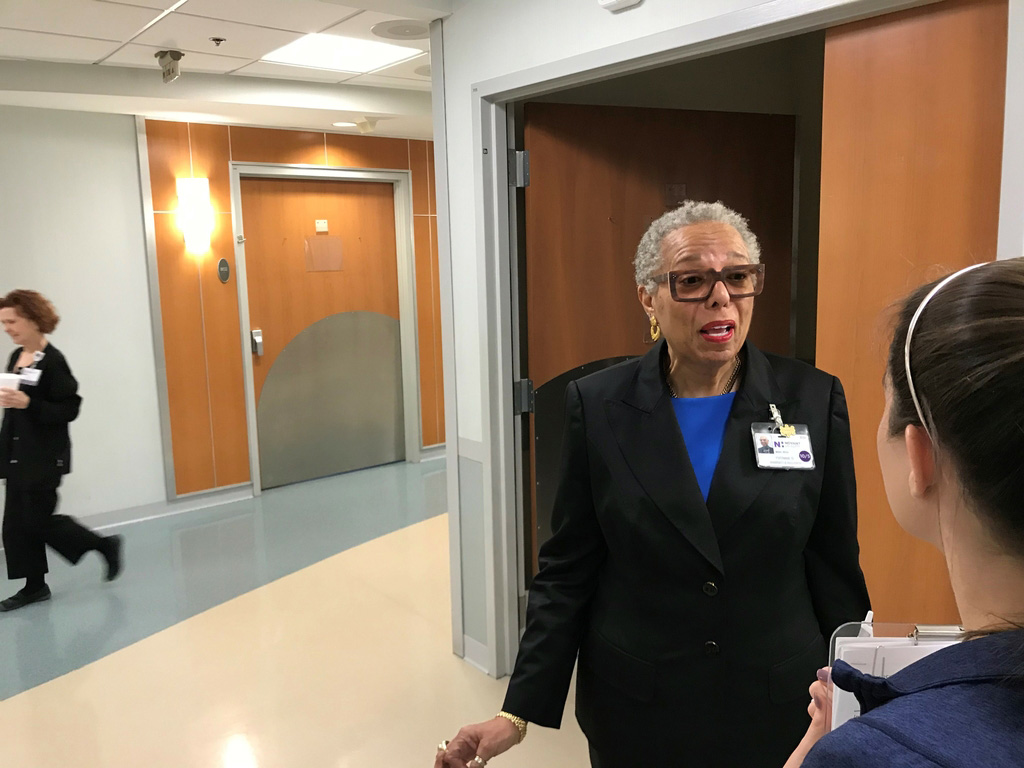
Yvonne Dixon still vividly recalls the heartbreak and hard work of her family’s struggle to care for her great-grandmother in Salisbury in the 1970s.
Caring for a person with dementia is often too much for families to handle on their own. But her parents had limited means, and there were no other options available.
“Even watching and observing how much it took to care for the sick and elderly built toxic stress in me as a child,” said Dixon, 60. Today, Dixon is a leader in Diversity & Inclusion at Novant Health, and her memories of those times inform her work to deliver the best care possible to communities.
Dixon’s story is a profound part of the African American experience. In the United States, discrimination and poverty often have meant that Black families had to handle their own problems, with no support from government or other institutions that were available to whites.
Dr. Rita Hargrave, a clinical instructor in the department of psychiatry at University of California, Davis, points out that African American families assumed such caregiver roles due to a historic lack of access Black families have to quality care and financial and public support. All of the above can make caregiving, especially for patients with dementia, a “great emotional burden,” she said.
‘I learned a lesson’
She wound up working in a long-term care facility, and found herself loving the time she spent with patients from different backgrounds. “I learned a lesson on how to look for beauty in someone that’s not skin deep, but rather in the heart and in the stories of their life,” Dixon said.
Dixon went on to get her nursing degree, and became a nurse in Winston-Salem. There’s one shift that still stands out today. A supervisor stopped her from seeing a patient, because the patient didn’t want a Black person treating him.
“That patient in room 703 was the Grand Wizard of the Ku Klux Klan,” Dixon said. The supervisor found a white nurse.
Taking care of everybody
It was a defining moment in Dixon’s life, and one that opened her young eyes to the challenge of providing health care in a complex world. Eventually, she would come to the conclusion that “equal” and “equity” can mean very different things when it comes to making sure patients get the care they deserve.
The obligation for Novant Health, Dixon said, is to make sure “our most vulnerable community members have access to benefit from our care.”
Moreover, she added, “What we have to say to our patients is that whatever cultural beliefs or background you have, we’re going to acknowledge it and respect it.”
Asking lots of questions
Today, Dixon is the director of health equity at Novant Health, where she works to identify gaps in health care by understanding which rural, low-income and racial and ethnic minorities need access and how Novant Health can help close those gaps.
One example: Dixon worked on a project to reduce readmissions among African American patients. In 2018, Novant Health was the first health care system to receive the federal Centers for Medicare and Medicaid Services (CMS) Health Equity Award for closing the gap in readmission rates by 50 percent among Black patients with pneumonia.
“You only find out what’s missing by asking questions,” Dixon said. We’re working to find better ways for our providers to listen to you and make you view your health as something that you want to have a conversation with us about.”
Sponsored by Novant Health.
